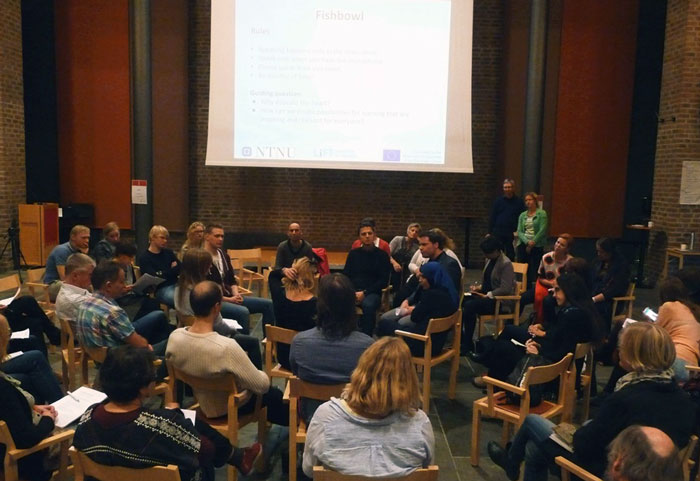Enthusiastic new Allies Fighting Social Issues
Last month I blogged about our LiFT Erasmus+ Strategic Partnership project coming to Trondheim to facilitate a workshop on Learning and Job Creation in a Digital Economy. The workshop took place on September 30 and October 1, and brought together over 40 stakeholders from around Trondheim and beyond.
The results of the event were considered highly successful by the local contributors hosting it. The U:turn project was the main local host. Gunnar Gangstø, the driving force behind it, said that the workshop had enabled cooperation with new key allies. This was in part due to the diversity of participants, and also because the collaboratory process helped them see new possibilities.
Building a Rich Storehouse of Knowledge
Participation from a group of people working on a concept for a new form of schooling led to a number of new links and steps in moving this initiative forward. The initiative PeopleUKnow also came away from the workshop with an enthusiastic new set of connections. Industry stakeholders included Ducky, a local startup with an innovative approach to making it simple for individual citizens to find ways to act on their concerns about climate change. This mix of interest, project and backgrounds created a fertile environment for the collaboratory process to help participants move initiatives forward.
In addition, the LiFT team also made progress. Meeting the day before the collaboratory, and the day after it, we are beginning to see how our extensive and systematic data collection is building up a rich storehouse of knowledge about our main research objective; how this methodology can help concerned citizens make progress on complex social issues.
Planning Summer School
We have completed three events in our current funding cycle, and with the experience of the five events held in our first project, we are preparing to build the foundations for disseminating the theory behind the work, the methodology of how to do it, and case study illustrations to bring it to life. All of this will culminate in a summer school (in Vienna 2018) to train people interested in using this methodology to support work on complex social issues around Europe.


